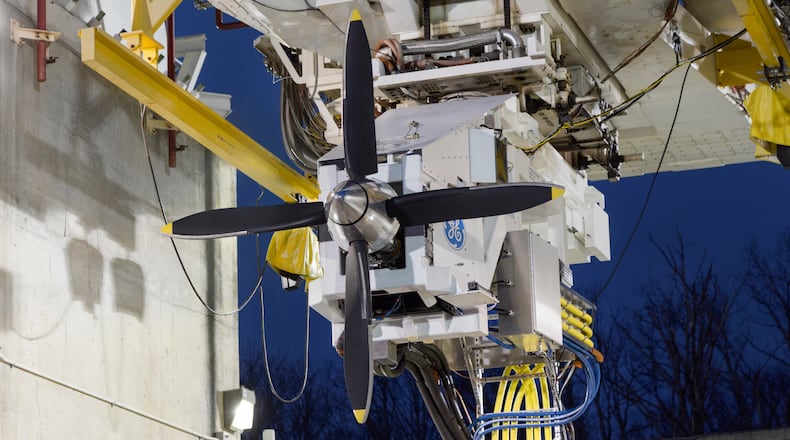That new day starts with a new investment. Last week, GE Aviation announced that it will join NASA and others in investing $260 million over five years to refine hybrid gas-electric flight technologies for commercial aviation.
Andrews agreed that the “closest parallel” on the ground may be the Toyota Prius, a hybrid automotive trendsetter that drivers have embraced since the early 2000s — and has been joined by other hybrid models such as the RAV 4 (and models by other automakers).
The NASA investment means 25 new jobs — and a chance to advance to the next step in the history of flight.
“This is the place to be to make history,” said Joe Krisciunas, general manager and president of GE Aviation Electrical Power Systems in Dayton.
Hybrid electric flight exists on a small scale already. But in recent years, work by GE Aviation and others has aimed at further refinements — in GE Aviation’s case, bringing a hybrid electric propulsion system to the narrow-body, long-flight aircraft market.
The goal is nothing less than full-scale electric flight.
Plans are to conduct ground and flight tests of a megawatt-class hybrid electric propulsion system by the mid-2020s, GE said.
Andrews calls it a “once-in-a-career moment.”
“It’s a rare moment when I think you see the future in front of you,” she said.
As a result of the NASA funding, GE expects to add more than 25 engineering jobs. The jobs will be based in Evendale, but much of the testing will happen at GE’s Electrical Power Integrated Systems Center (also known as the the “EPISCenter”) on the University of Dayton campus.
“I myself will be up there (in Dayton) at least once a week,” Andrews said.
The demand is high for qualified employees right now. Krisciunas said he has 22 engineering jobs open in Vandalia and Dayton, not counting other engineering, manufacturing and assembly openings across the company’s Dayton-area footprint. (The company has about 300 employees at the EPISCenter alone.)
GE says hybrid electric propulsion technologies can save fuel and optimize engine performance. The company aims for its products to have net zero emissions by 2050, and the company thinks hybrid electric engines will help it get there.
The technology will be flight-tested with a modified Saab 340B testbed and GE’s CT7-9B turboshaft engines.
And after the technology is proven, nothing will be the same, Andrews believes.
“I truly believe that after we do this flight demonstration that we will never release an (airplane) engine that doesn’t have an electrification component to it,” she said, adding later in the interview: “It’s a huge deal.”
About the Author



